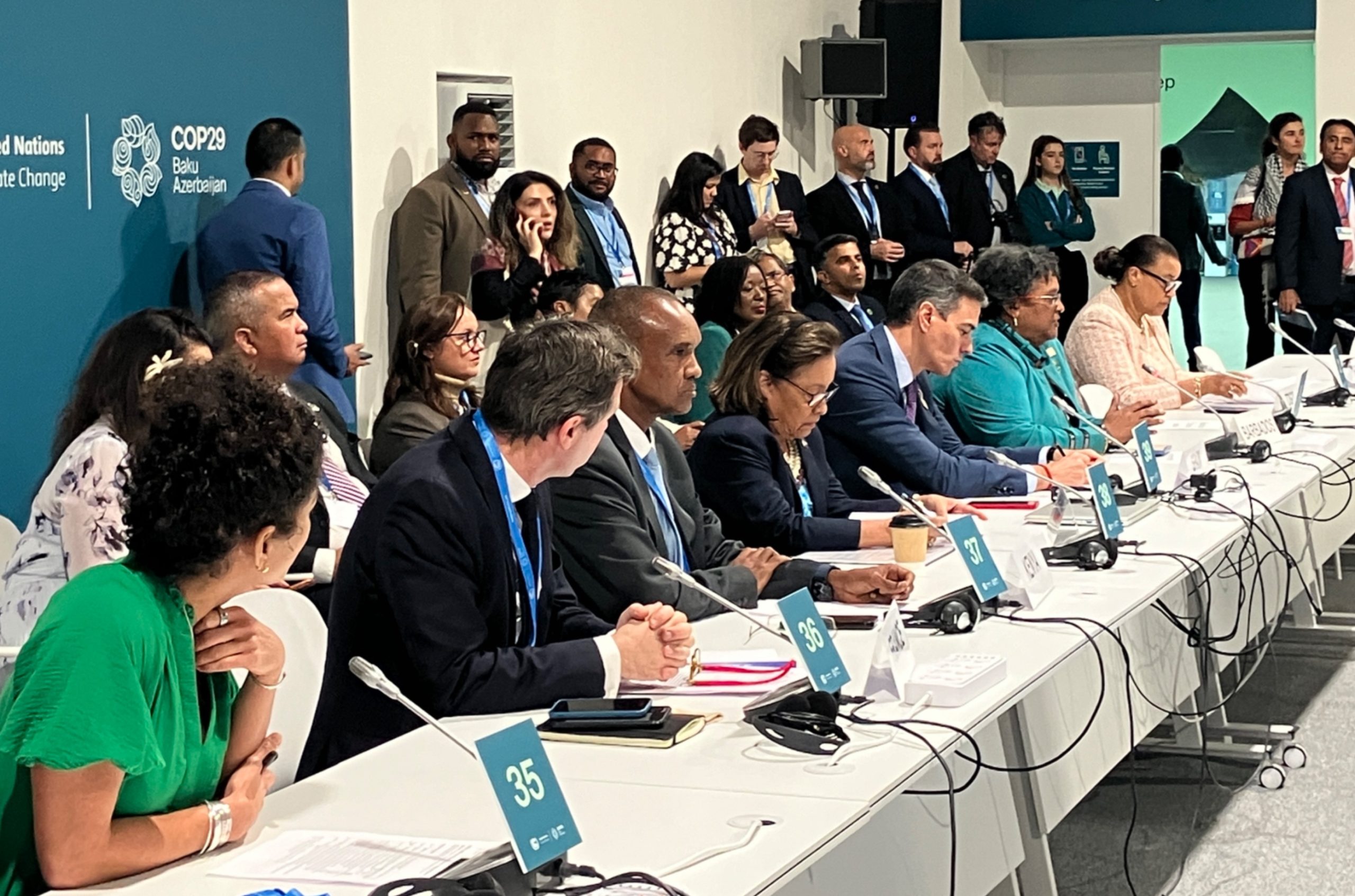Welcome to the first edition of the newsletter from the secretariat of the Global Solidarity Levies Task Force!
The task force, launched at COP28 and co-chaired by Barbados, France and Kenya, is now supported by a coalition of 17 governments and organisations. At COP29, we launched our progress report Scaling Solidarity: Progress on Global Solidarity Levies, and I encourage you to read it to find out more about what we achieved in 2024.
Much more is planned in 2025, as we prepare for the Financing for Development 4 summit in Seville in June and COP30 in Belém.
Our aim: bringing together a coalition of governments ready to implement internationally coordinated levies and use the proceeds for climate action and development at home and globally.
There is much to be done, and that starts with the open consultation which we are launching today. I invite you all to share your views and look forward to seeing what you have to say on this crucial topic.
Friederike Röder
Director, Global Solidarity Levies Task Force
Have Your Say on 16 Solidarity Levies for Climate and Development
The Global Solidarity Levies Task Force is inviting feedback on straw-man proposals for 16 solidarity levies . These levy options are being explored as ways to reshape global finance and generate finance for climate and development action.
We invite you to share your views by 28 February. We welcome submissions from NGOs, academics, industry leaders, and all other interested stakeholders. Government representatives are also reviewing the straw-man proposals. Your feedback will shape the task force’s proposals for international solidarity levies.
The 16 levy options include:
- Aviation, such as fuel from private jets and international flights, and premium or frequent flyer tickets.
- Cryptocurrency, on transactions, capital gains, and energy used in mining.
- Fossil fuel extraction, excess/windfall profits, and minimum corporate taxation.
- Global shipping emissions (‘Well-to-Wake’).
- Financial transactions, such as a new or enhanced levy on stocks.
- Plastic polymer production.
- International carbon pricing mechanisms through linked or expanded emissions trading schemes and a global carbon price floor.
- Ultra-high-net-worth individuals.
We are also starting to commission more in depth work on some levy options on aviation, financial transactions and fossil fuels. Your feedback will be shared with the researchers and the results will be published ahead of the 4th Financing for Development Summit in Seville.

Why It Matters
- In Europe alone, the aviation industry plans to double its passenger traffic by 2050 and will deplete its carbon budget as early as 2026 – read the study
- Natural disasters cost $417 billion worldwide in 2024. Last year, the hottest on record, saw more than 20 catastrophes with multibillion-dollar price tags, including the deadly wildfires in the US which will cost over $50billion in damages.
- The five largest fossil fuel companies reported $281 billion in profits in 2022-23, while fossil fuel subsidies surged to $7 trillion in 2023—a stark contrast to the urgent need for climate and development finance.
Join Us
The task force will present updates at major global events like the 5th Finance in Common Summit in Cape Town, South Africa. On Thursday 27 February, the task force will be co-organizing two events there. We will soon share more information and hope to see you there!
In The News
The Maga Vision of Corporate Life will Struggle – Financial Times (subscription required)






